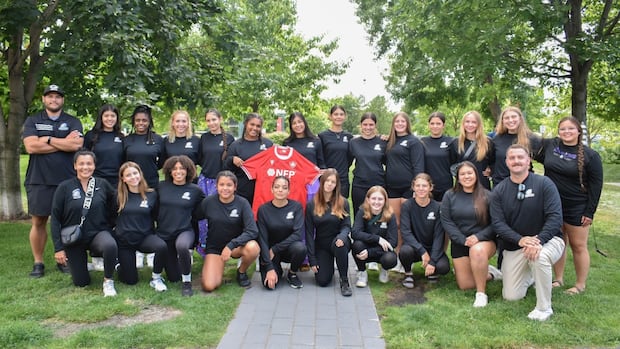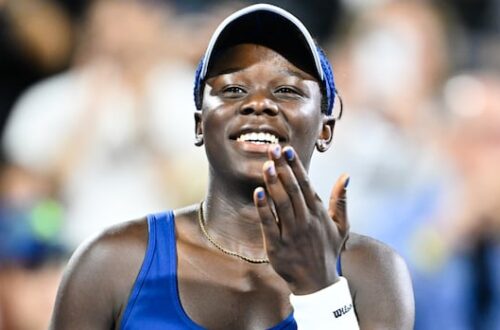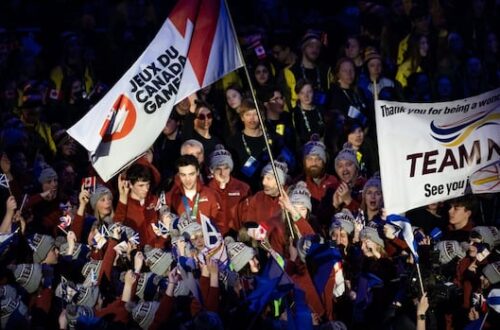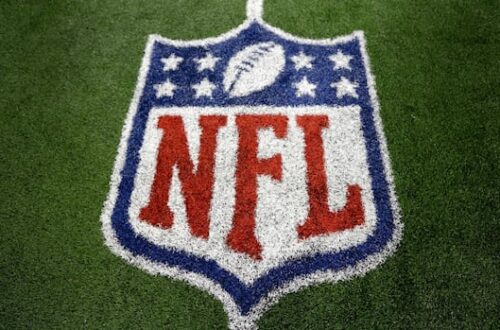On the first Friday evening in August, Canada’s senior women’s rugby team hosted the Eagles, the American women’s national team in Ottawa. Nearly 12,00 fans descended on TD Place stadium, making it the largest crowd to ever watch a standalone women’s rugby match in North America.
Canada was dominant in winning 42-10, the 11th straight victory over the Americans.
This send-off match bid the team well as they set out for Ireland for some pre-tournament friendlies ahead of the Women’s Rugby World Cup that will be hosted in England beginning Aug. 22. Canada plays its first game Aug. 23 against Fiji.
With Canada’s every attempt to fly up the wings, the crowd roared with encouragement.
Canada is ranked second in the world and after a stunning silver finish at the Paris Olympics in the sevens, the 15s team has podium ambitions.
Playing against one of the most famous women’s players in the world surely helped in drawing attention to the sport as hordes of fans with signs screamed to get Ilona Maher’s attention. Maher is part of a dedicated group of rugby players putting the sport on the map. Here at home, a humble squad of Canadian players were thrilled to play a match in front of their fans.
After the match, Canadian forward Pamphinette Buisa said that having a crowd at home is very important and gives an edge before heading out.
“I think from the last World Cup, we learned a lot, and this time, we are, I feel like, more than ready,” she said. “I’m just so excited to be able to showcase that with this team, especially with the new movie, the one squad movement, that we’re just so dynamic.”
Buisa said it was the first time her family and community saw her compete in a Canadian jersey on home soil so she was extra proud.
While the senior women’s face-off match was a resounding success, there was another match that took place at TD Stadium that day. In a combined effort with both rugby unions and corporate partner Canadian Tire Jumpstart, Iroquois Roots Rugby and Play Rugby USA brought girls teams to compete and meet the senior women’s teams.
The collaboration was important. Iroquois Roots Rugby (IRR) co-founder and director Melanie Squire is a proud Haudenosaunee woman from Six Nations who started the organization with her daughter, Meagan Wilson. Wilson is an accomplished rugby player who helped McMaster University to the U Sports championship in 2015. She is now the head coach of IRR.
Their family connection (Squire’s son also played) to rugby is strong but for Squire any opportunities should extend to the entire community.
“The world of rugby was open to us, because, oddly enough, where we’re from, near Brantford, Ontario, every high school there has a rugby team,” Squire said. “So for us, it was kind of a big thing, obviously, not in our communities — like we’re trying to do now, but big in that area.”
Squire saw how her daughter excelled in school and sports and wanted that for more girls. She started with two players in 2018 and now there are more than 115 participants at IRR.
“We show up with a weird-looking ball that kind of looks like a football,” she said with a laugh. “But you’re not wearing any pads. So then that’s scaring people, and they think it’s barbaric, and you’re kind of like, this one rugby ball can do so many things that you don’t need a professional field. You need a little open space and a buddy, and you’re playing rugby.”
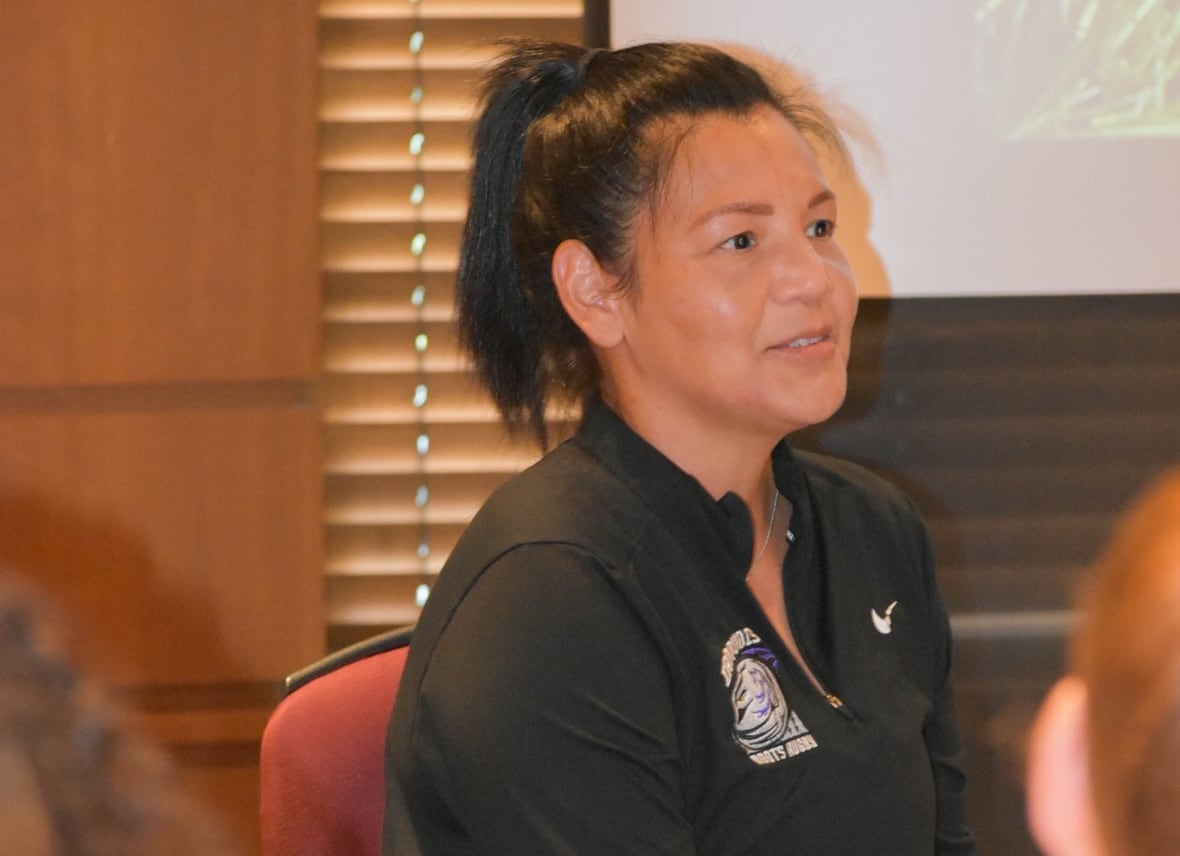
While all the girls from IRR are not from Indigenous or First Nations communities, they learn a lot and respect the culture part of what sport is intended to do. IRR creates space for young women who may feel isolated or unwelcome in traditional sports places and systems. Access to sports, equipment and training are barriers for First Nation and Indigenous girls but IRR navigates that through their programming.
“Well, a lot of, probably all of our girls out here wouldn’t necessarily have access to sport, or the sport in particular,” Squire said. “So just for us to be breaking down all of the barriers for them, in terms of they don’t pay to play, they don’t pay to travel, so it’s no financial burden on families. We come to them. We’re in our own communities. They don’t have to travel outside. We provide everything they need.”
In addition to the competition, Squire offered a session for both senior women’s teams that included educational teachings from her culture. Canadian national team member Olivia Apps said the presentation was “very impactful” and that she feels wearing the Canadian jersey is “complex”.
“You know, like, when we sing the national anthem, we think a lot about our nation’s history and what that really means to us, and also all the unraveling we’re doing with our nation’s history with colonialism,” Apps said. “So I think it’s like for us being able to connect with that community and see the impact that rugby can have in young girls is like, I think it connects with all of our story in a lot of ways.
“But also I think it just brings a lot of love and passion and peace to sometimes issues and situations that you know have a lot of trauma associated and harm. I think it brings a beautiful side to life that I’m really proud to be a part of.”
On the U.S. side, Play Rugby USA brought a team up from New York City. The predominantly Black girls team comes from the Bronx and their own existence is part of resistance coupled with excellence in sport. Their coach, Brianna Thomas, played NCAA Division I rugby. She was one of the only Black players on her team but fell in love with the mental strength required in the game.
She teaches that to her own players as part of her coaching philosophy.
“I tell my players that they’re just as deserving as anyone else,” Thomas said. “Sometimes there’s going to be rooms and doors that we’re not expected to be in, right? But you gotta walk in with that confidence and believe that you do deserve to be there, that you do belong there, even when other people say that you don’t deserve to be there.
“Believe in yourself because we’re believing in you.”
Very often, Thomas introduces rugby to players who have never watched it. There is limited space to play in New York which is a barrier. Space to play on a field or even in the sport can be a challenge. Like IRR, Play Rugby USA offers free programming and no fees for participation. Both teams told me that this was the first sports-related traveling opportunity for many of the athletes.
“I love that Iroquois Roots Rugby is very inclusive and a safe environment for all athletes,” said Elaina McNaughton, who plays with the U16 Girls team at IRR. “The program has an amazing coaching staff that helps myself and many athletes grow and thrive in the sport.”
Above and beyond traveling, the merchandise and the thrill of participating, I saw a moment between two players after they played two matches.
The players had taken a photo between the goalposts and were walking back to their respective team benches. After following each other on Snapchat, they wished each other well and thanked each other so sincerely it almost made me tear up. Isn’t this what sport is supposed to be? Amplifying and exposing new players and potential fans to sport?
With the Canadian women’s team heading off to conquer new ground, creating new legacies in rugby is important. Rugby has a wonderful tradition of camaraderie and friendship. To see this expanded toward Indigenous, Black and racialized youth is formidable and necessary.
At a time when sports can be divisive and confusing, this is a moment when we can sit back and enjoy the players’s experiences and appreciate that the purpose is as powerful as the game.
